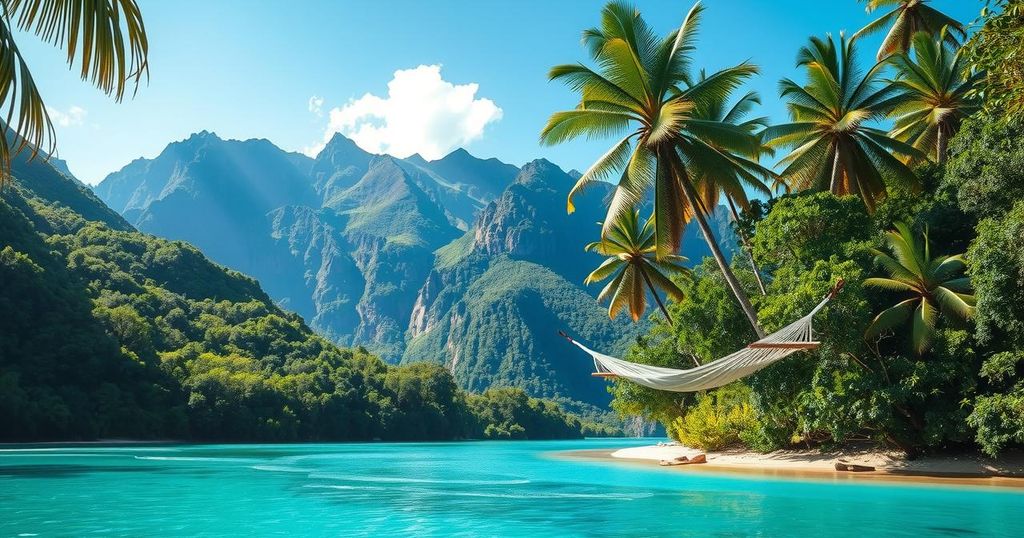The global tourism sector is projected to reach $1.1 trillion by 2032, driven by a rising demand for unique experiences and eco-tourism. Emerging destinations, particularly in nations like Brazil, South Africa, and Nepal, are appealing to a new wave of travelers. However, the rapid growth poses potential risks such as overcrowding and environmental degradation, requiring careful management to ensure sustainability.
The global tourism industry is on the verge of significant expansion, with projections estimating a remarkable surge to $1.1 trillion by 2032. The increasing desire for unique and remote destinations is reshaping travel trends, leading to a potential strain on traditional tourist spots. This dynamic change highlights the urgent need for destinations to prepare for burgeoning interest from travelers seeking fresh experiences.
The tourism market, valued at approximately $599.4 billion in 2022, is set to grow at an exceptional compound annual growth rate (CAGR) of 6.6%. This tremendous growth could cause popular locations to become overcrowded, potentially inflating costs and transforming quiet locales into bustling tourist hubs. Stakeholders must consider how best to manage this influx of visitors to maintain the charm and appeal of these destinations.
Eco-tourism has emerged as a significant trend, rapidly gaining traction among environmentally-conscious travelers. Popular destinations like Nepal and Kenya saw tourism increases of 24% and 37%, respectively, indicating a growing preference for nature-focused travel experiences. However, the commercialization of these natural wonders poses questions about sustainability and the ability of these regions to handle increased tourist numbers without compromising their environmental integrity.
The digital revolution is fundamentally altering the travel landscape, with mobile technology making trip planning and reservations more accessible than ever. In 2022, mobile applications became the primary method for booking travel, a trend that is expected to continue. However, increased ease of booking raises concerns about local infrastructure capacity and whether communities can accommodate such rapid growth in tourist numbers.
While Europe remains the dominant region in global tourism, emerging destinations in Asia-Pacific, the Middle East, and Latin America are quickly rising in popularity. Countries such as Brazil, Egypt, and South Africa are poised to attract adventure seekers and wildlife enthusiasts. As travelers seek lesser-known locales, the dynamics of global tourism are shifting, reinforcing the competition between established hotspots and burgeoning tourist destinations.
Despite the promising growth in tourism, the downside of overcrowding looms, threatening the appeal of once-idyllic destinations. As tourist numbers rise, it is increasingly difficult for locations to maintain their character and beauty, which may lead to cultural erosion and degraded local environments. Travellers may soon find the charm they seek replaced with congestion and commercialization.
The rapid growth of the tourism market necessitates thoughtful consideration for the future of global travel. While the desire for exploration and cultural connection drives increased demand, destination management and sustainability are critical. The industry must find a way to balance growth with preservation or risk losing the very essence of travel that attracts visitors in the first place. The next decade will prove crucial in determining whether tourism can maintain its allure amid these challenges.
The tourism industry is at a critical juncture, characterized by exponential growth, especially in eco-tourism and emerging markets. The projected expansion to $1.1 trillion by 2032 raises important questions about sustainability and infrastructure readiness in popular travel destinations. As traveler preferences evolve and digital booking encourages more visits to unique locales, stakeholders must prioritize preserving the integrity of these regions to maintain their charm and allure. Ultimately, the future of global tourism will hinge on addressing these pressing challenges thoughtfully.
Original Source: www.travelandtourworld.com




